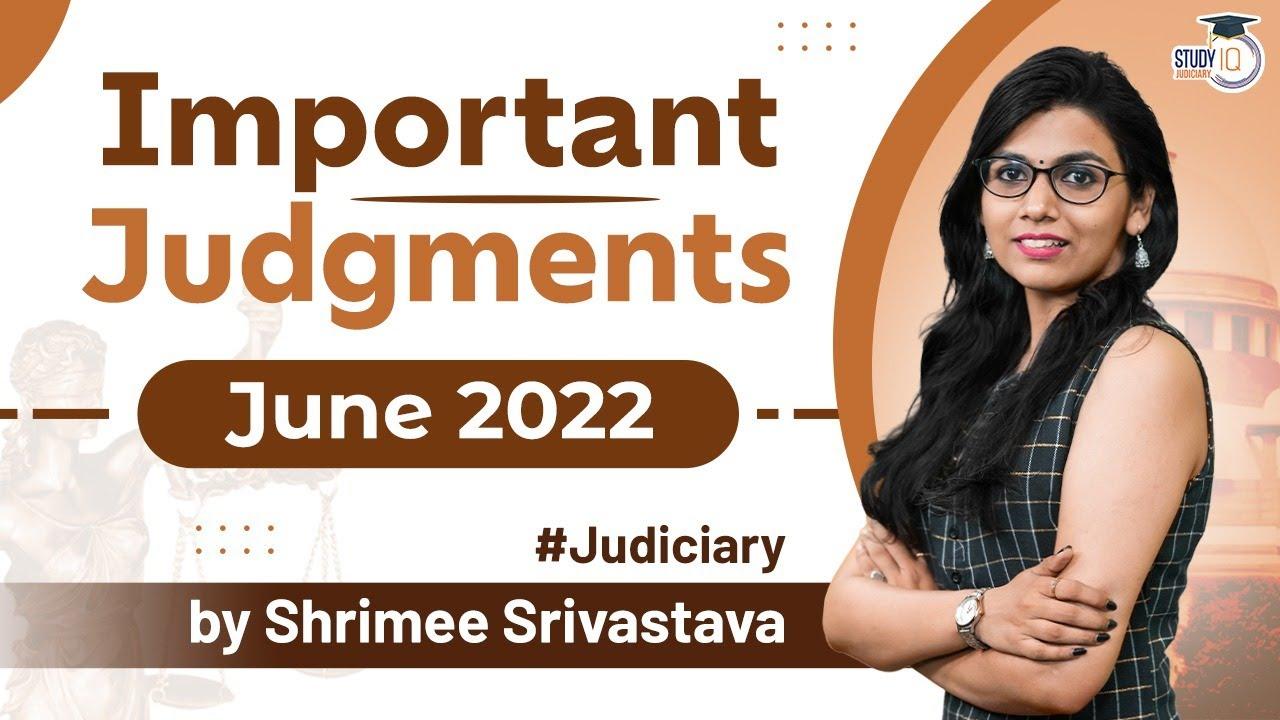Table of Contents
In Re : TN Godavarman Thirumalpad versus Union of India
- Citation : 2022 (SC) 540
- Corum: Hon’ble Justices L Nageswara Rao, BR Gavai and Aniruddha Bose.
- In a significant order, the Supreme Court directed that each protected forest should have an Eco Sensitive Zone (ESZ) of 1 kilometer.
- The Court further directed that no permanent structure will be allowed within the ESZ.
- Mining within national wildlife sanctuary or national park cannot be permitted and thus will not be allowed.
- If the existing ESZ goes beyond the 1 km buffer zone or if any statutory instrument prescribes a higher limit, then such an extended boundary shall prevail.
- The present set of applications arose out of a report of the Central Empowered Committee on 20th November 2003.
- This report specifically pertains to Jamua Ramgarh wildlife sanctuary.
- The Court noted that the said report gave a horrific picture of ravaging of a protected forest mainly by private miners mostly with temporary working permits obtained from the Governmental agencies.
Somakka (Dead) By Lrs. v. K.P. Basavaraj (Dead) By Lrs.
- Citation: 2022 (SC) 550, 13 June 2022
- Corum: Hon’ble Justices S. Abdul Nazeer and Vikram Nath
- Code of Civil Procedure, 1908; Order 41 Rule 31 – Contents, date and signature of Judgment – The Judgment of the Appellate Court shall be in writing and shall state
(a) the points determination;
(b) the decision thereon;
(c)the reasons for the decision; and
(d) where decree appealed from is reversed or varied, the relief to which the appellant is entitled, and shall at the time that it is pronounced be signed and dated by the Judge or by the Judges concurring therein.
- Appeal is a continuation of the original proceedings – first appeal is valuable right of the parties – whole case is open for rehearing both questions of facts and law – being first appellate court, it is the duty of the High Court to ensure that the judgment reflect conscious application of mind and it must record contentions raised by the parties and the court’s findings, supported by reasons in respect of all the issues – noncompliance would lead to infirmity in the judgment. [Paragraph No. 28 to 29.4]
Ex. Ct. Mahadev vs Director General, Border Security Force
- 2022(SC) 551 | 14 June 2022
- Coram: Hon’ble Justices BR Gavai and Hima Kohli
- Section 96-106,IPC – Right Of Private defence –Accused need not prove the existence of private self-defence beyond reasonable doubt and that it would suffice if he could show that the preponderance of probabilities is in favour of his plea, just as in a civil case. (Para 12)
- Indian Penal Code, 1860 ; Section 96-106 – Right Of Private defence – The right of private defence is necessarily a defensive right which is available only when the circumstances so justify it.
- The circumstances are those that have been elaborated in the IPC. Such a right would be available to the accused when he or his property is faced with a danger and there is little scope of the State machinery coming to his aid.
- At the same time, the courts must keep in mind that the extent of the violence used by the accused for defending himself or his property should be in proportion to the injury apprehended.
- This is not to say that a step to step analysis of the injury that was apprehended and the violence used is required to be undertaken by the Court; nor is it feasible to prescribe specific parameters for determining whether the steps taken by the accused to invoke private self-defence and the extent of force used by him was proper or not.
- The underlying factor should be that such an act of private defence should have been done in good faith and without malice.
SAUD FAISAL v. STATE OF UTTAR PRADESH & ANR.
- Citation : 2022 (SC) 556
- Corum: Hon’ble Justices C.T Ravishukla and Sudhanshu Dhulia
- Code of Criminal Procedure 1973 – Section 311 -Merely because a different statement given by the same prosecution witness in another case that itself would not be a reason for recalling the witness
MAHENDRA SINGH AND ORS. Vs. STATE OF M.P.
- Citation: 2022 (SC) 543
- Coram: Hon’ble Justices B.R. GAVAI and HIMA KOHLI
- Criminal Trial – Witnesses are of three types, viz.,
(a) wholly reliable;
(b) wholly unreliable; and
(c) neither wholly reliable nor wholly unreliable.
- When the witness is “wholly reliable”, the Court should not have any difficulty inasmuch as conviction or acquittal could be based on the testimony of such single witness.
- Equally, if the Court finds that the witness is “wholly unreliable”, neither conviction nor acquittal can be based on the testimony of such a witness.
- It is only in the third category of witnesses that the Court has to be circumspect and has to look for corroboration in material particulars by reliable testimony, direct or circumstantial. [Referred to Vadivelu Thevar vs. The State of Madras (1957) SCR 981] (Para 12- 13)
- Criminal Trial – Motive – Only because the motive is established, the conviction cannot be sustained. (Para 23)
- Criminal Trial – The same treatment is required to be given to the defence witness(es) as is to be given to the prosecution witness(es). (Para 20)
Download| Free PDF






















 WhatsApp
WhatsApp